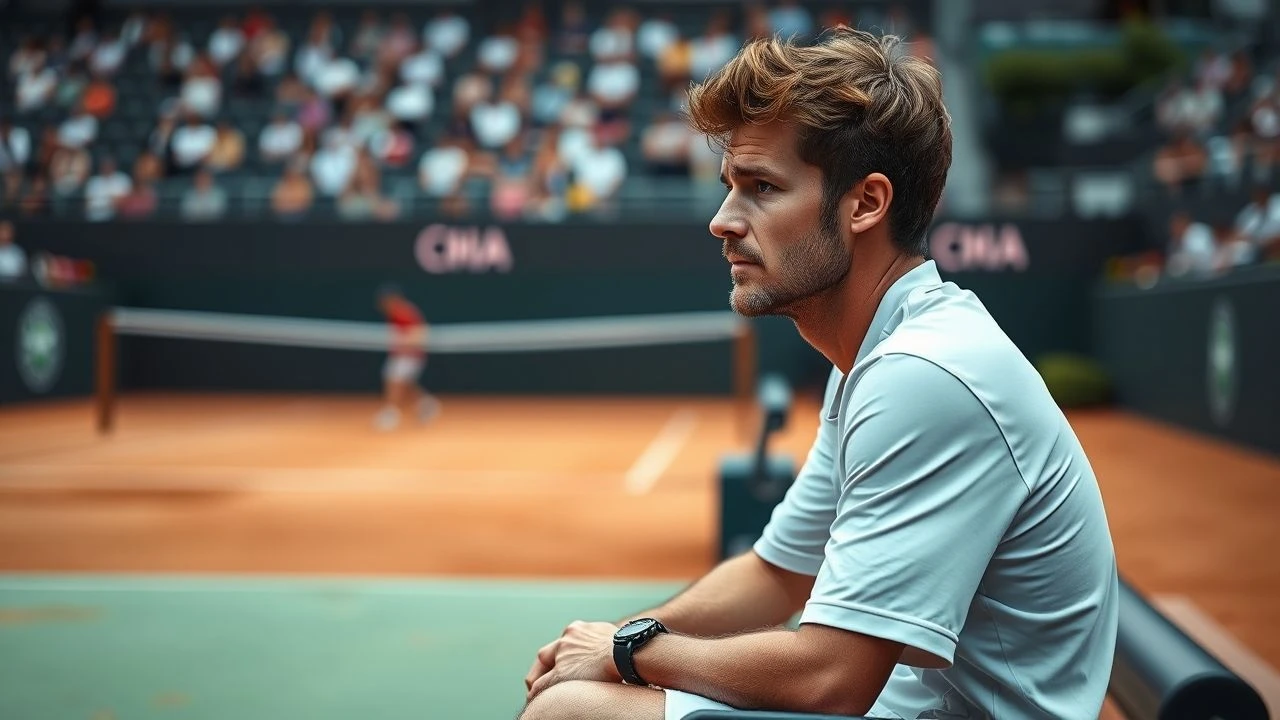
The sheer volume of travel is staggering. Players are hopping continents every few days, adjusting to new time zones, climates, and court surfaces. This constant disruption to sleep patterns and routines can lead to fatigue, impaired performance, and a weakened immune system. You'll often hear players talking about *just how much of a drag* it is.
Beyond the travel, the pressure to win is immense. The ATP rankings are fiercely competitive, and players are constantly fighting to maintain their position, qualify for tournaments, and earn a living. The pressure from sponsors, coaches, and even themselves adds to the stress. It’s a *proper cauldron* of anxiety.
Burnout and injury rates are unfortunately high on the ATP Tour. A 2017 study published in the *Journal of Sports Sciences* revealed that professional tennis players reported elevated levels of burnout compared to athletes in other sports. The ATP itself publishes data on injury rates, which consistently show a significant number of players sidelined each year due to physical ailments.
“People think we’re just hitting a ball, but it's so much more than that,”
says Andy Murray, in a BBC Sport interview, highlighting the emotional and mental effort required. Sports psychologists often emphasize the importance of mental resilience and coping mechanisms for players to survive the rigours of the tour. *It's just a grind.* Ultimately, the glamorous image of the ATP tour often masks the harsh realities that players like Ruud must face in order to compete at the highest level.
Casper Ruud, like many athletes operating under immense pressure, has been commendably open about his mental health *challenges*. He recognised the importance of seeking professional help to navigate the stresses of professional tennis. It's fair to say, acknowledging these struggles is a huge step, especially in a world where stoicism is often valued above all else.
Ruud's decision to engage in therapy highlights a growing awareness within the sport. It's not just about physical conditioning, is it? It's about equipping yourself with the tools to manage the psychological demands. Interviews suggest his therapy sessions have provided him with coping mechanisms to deal with the inevitable highs and lows of competition. *Furthermore*, he uses the techniques learnt, to ensure he is at his very best.
Mental health professionals specialising in sports psychology often emphasize the benefits of therapy and mental skills training for athletes like Ruud. These strategies can improve focus, reduce anxiety, and build resilience. It's about optimizing performance by addressing the whole person, not just the athlete,
one expert noted in a recent article. *Indeed*, the mental approach is often overlooked, until a crisis occurs.
By speaking candidly about his experience, Ruud is helping to destigmatize mental health issues within tennis and encouraging other players to prioritise their well-being. It’s a message that resonates beyond the court, reminding everyone that seeking help is a sign of strength, not weakness and shows incredible *bravery*.
Casper Ruud's journey highlights the crucial link between mental well-being and peak athletic performance. His commitment to addressing his mental health has demonstrably impacted his tennis, leading to more consistent results and a more resilient approach on the court. It's about finding that *inner stability* that allows him to perform at his best, even under immense pressure.
Consider, for instance, his improved performance in high-stakes matches. Where he might have previously faltered, he now exhibits greater composure and strategic thinking. This is no mere coincidence; it's the direct result of the mental tools he's developed. His *competitive edge* has definitely sharpened.
Sports psychology research consistently shows the connection between mental strength and success. Athletes who prioritize their mental health are better equipped to handle stress, maintain focus, and bounce back from setbacks. Ruud's experience perfectly illustrates this. I reckon, *self-regulation skills* have helped him out a lot!
While precise data from performance tracking apps isn't publicly available, anecdotal evidence from interviews and match observations suggests tangible improvements. His body language is more positive, his decision-making is sharper, and his overall demeanour exudes confidence. It’s clear that prioritising his mental health has been a game-changer for Ruud, allowing him to unlock his full potential and consistently challenge for top honours in the tennis world. His *overall approach* has benefited from this.

Rockies Plunge to 8-42: Phillies Complete Sweep, Exposing Historic Struggles
Rockies Stun Yankees Despite Aaron Judge's Blast: Historic Upset at Coors Field
Caitlin Clark: 'It's a Great Time for Indiana Basketball' as Pacers Dominate Playoffs & Fever Rise
Dodgers and Mets Clash in NLCS Rematch: Who Holds the Edge?
Ronaldo Jr.'s U15 Debut Ignites Scramble Among European Giants
Mbappe's Hattrick Not Enough as Barcelona Edge Real Madrid in El Clasico